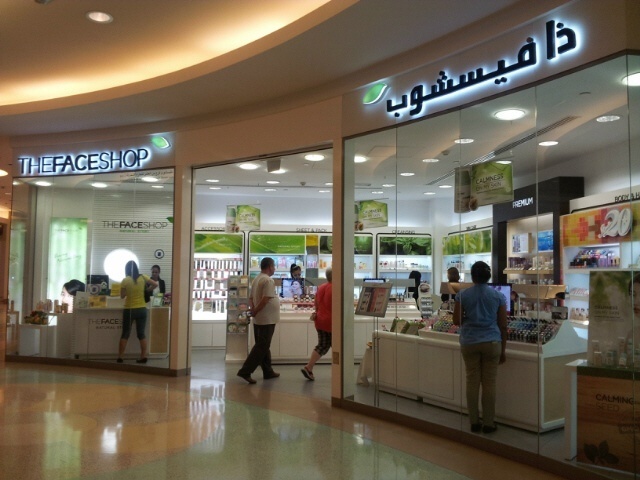<관련 영문 기사>
Face Shop pushes global expansionFor The Face Shop, global expansion will be high on the list of priorities this year as it seeks to mark new territory outside of the saturated Korean market.
“The Face Shop will be driven to look outside of Korea,” said Park Eun-kyung, an analyst at Samsung Securities.
In 2013, The Face Shop, owned by LG Household & Healthcare, saw sales rise about 20 percent on-year to a record high of 523 billion won ($503.7 million).
The stellar performance was mainly thanks to a rise in overseas sales. According to the company, the proportion of such sales in its revenue portfolio reached a new high of 25 percent that year.
“The Face Shop has definitely jumped ahead of its local rivals such as Missha and Etude House in the global market,” Park said.
Since opening its first overseas shop in Taiwan in 2004, The Face Shop has opened 1,418 outlets in 27 countries.
“The brand mission offering quality natural beauty products at an affordable price was something new on the global beauty scene at the time, and that is why The Face Shop appealed to Asian consumers in such a short period of time,’’ Kim Hee-jeong, team leader of overseas marketing at The Face Shop, told The Korea Herald.
The brand further strengthened its competitive edge after it was acquired by LG Household & HealthCare in 2010.
The rising popularity of Korean culture through the Korean Wave also helped local beauty brands increase their brand awareness overseas.
Aware of such results, The Face Shop has been appointing top-tier K-pop and K-drama stars as brand ambassadors for global marketing campaigns since 2011.
Singer Suzy from miss A is an ambassador for its chia seed skin care line. The Face Shop recently signed a contact with actor Kim Soo-hyun to promote products in China.
“We don’t compete with local rivals overseas anymore. Instead, we want to focus on other global brands such as The Body Shop or L’Occitane,” Kim said.
In Asia, The Face Shop is focusing on China and Japan. In 2013, the brand set up a joint venture with China’s Fo Shan to build a direct brand management system in the country.
“Expanding in the Chinese market is the key to success,’’ said an official from LG Household & Healthcare.
Last year, The Face Shop reaped 45 billion won in sales in China, accounting for 40 percent of overseas sales. The company expects the figure to increase to 70 billion won this year.
In Japan, The Face Shop has partnered with Aeon, a leading Japanese retail group running convenience stores, supermarket chains and drug stores nationwide. The Face Shop has also started increasing its number of directly managed road shops.
Outside of Asia, the beauty brand has been approaching the Middle East. “The demand for beauty products of The Face Shop is growing faster than expected in the region,’’ said Kim.
The brand first set foot in the Middle East in 2006 with a an outlet in Amman, Jordan. It now runs 18 such shops in the United Arab Emirates and seven in Saudi Arabia.
Further, in North America, The Face Shop acquired Canadian body care and fragrance retailer Fruits & Passion in 2013 to increase its presence.
“We are reorganizing the branches of Fruits & Passion in and out of Canada, while developing a strategy to utilize the retail infrastructure and talents of the brand for the expansion of The Face Shop in the region,’’ an official from LG Household & Healthcare said.
For long-term success in the global market, observers said The Face Shop should invest more in brand management.
“What matters for Korean beauty brands to grow into global players … (is) brand management rather than retail networks,’’ said Park from Samsung Securities.
"As such, The Face Shop has been upping investment in the area. "Our efforts to set up more direct brand shops worldwide reflect our management goals," Kim said.
By Seo Jee-yeon (
jyseo@heraldcorp.com)








